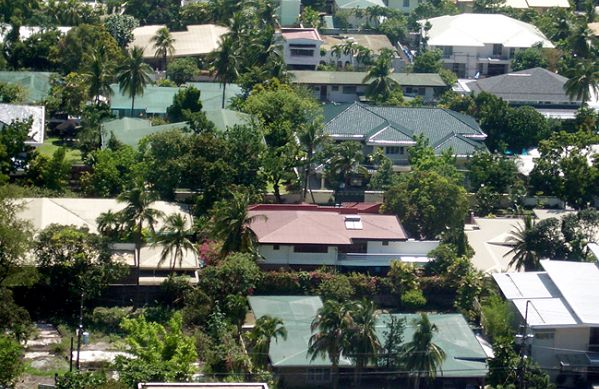
Naming estates beyond wildest dreams
It is surprising that with all the extensive engagements in the formulation of the National Housing Policy that took a decade to complete (2005-2015), the issue about the naming of estates never featured.
What features is a stocktaking of houses in districts during which the name of a community would be noted; but that is where it ends.
A cursory reading of the policy gives no hint about the strategic thinking in relation to the naming of built environments.
Perhaps, because the construction sector, like many other sectors, is a liberal one and led by private entrepreneurs, the names given to estates and the need for them to be in conformity with the Ghanaian language, culture and tradition, does not arise.
It is, however, necessary that guidelines or regulations in the naming of estates that are fast springing up all over the country are drafted and implemented.
Inappropriate
That is because the names of streets and areas are totally incongruous with the names of the estates found therein.
For instance, take the area behind the Trade Fair at La called Tse Addo.
"Tse" my Ga friends tell me, is translated Father, in English.
Thus, Tse Addo, simply is Father Addo.
It gets interesting with a ride around Tse Addo, which is one of the electoral areas in the La Dade-Kotopon Municipal area.
Developers have totally disregarded the indigenous names of the streets and the place hosting their estates and have transposed foreign names into a predominantly Ga community.
From the Spintex road, through East Airport into the area, there are the gated estates with foreign names, such as, Glenshire Hills; Favdaz Homes, Zadiel Homes and the most absurd, is Vista del Mare.
What do these names mean?
What are the similarities between such names and the name of the area, Tse Addo?
What is the rationale of developers when they choose such names?
Is it to make the estates so out of the ordinary that they are priced out of the means of the majority of those living in that community?
Are those names to suggest that living there would be like living abroad?
But are those estates islands?
How does a child living in one of these estates and who gets lost pronounce the name correctly, for a police officer to help in finding the home?
Enquiries at the La Dade Kotopon Development Trust last year showed that the focus was on the several encroachments on their lands and the contests in courts.
How developers were going about naming their sites and areas was not a pressing issue.
Inferences from the National Housing Policy, however, goes to support the idea of the indigenous naming of estates.
Right to housing
First, it makes housing a rights issue, emphasising the universal right of all human beings to adequate housing.
"The right to an adequate standard of living is of central importance for the enjoyment of all economic, social and cultural
rights," the policy states.
A right to adequate housing, as stated, must be a right to live in an estate, the name of which can be easily pronounced by my grandmother in finding her way there on a visit!
That right, as the basis for the enjoyment of all other rights, including social and cultural, as quoted above, cannot be realised, if estates are named Vista del Mare!
The laudable intentions to increase the housing stock to cater for all segments of society, by ensuring the construction of houses suited to all, means suitability linguistically too.
It is really absurd to have such names, the meaning of which cannot be easily known, within localities with names that don’t associate with them.
It is practically laughable and estate developers with a liking for that must be advised.
It is not for want of indigenous names, I believe.
It is the contagion of the general mentality that foreign goods are of a better quality, that is troubling some "lazy" estate developers.
They are lazy and greedy, as they cannot commit some minimal resources into the research of names that resonate with residents in localities.
They end up with such absurdities of understandable foreign names of estates in our communities.
Writer's email:
